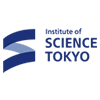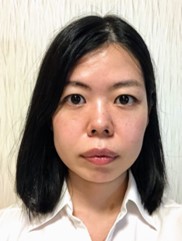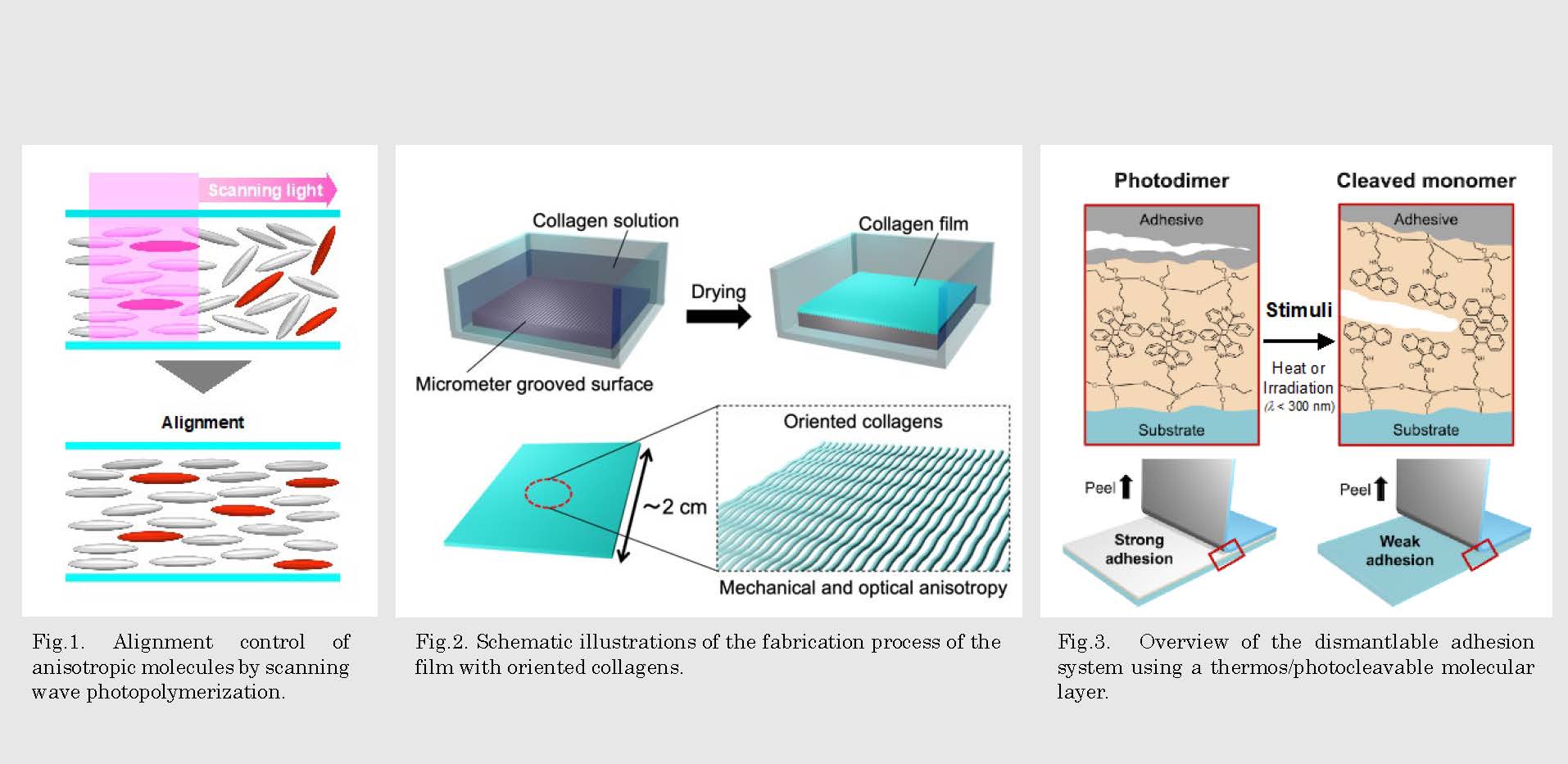
CLS
Laboratory for Chemistry and Life Science, Institute of Integrated Research, Institute of Science Tokyo
東京科学大学
総合研究院
化学生命科学研究所

LAST UPDATE 2022/09/20
-
研究者氏名
Researcher Name相沢美帆 Miho AIZAWA
助教 Assistant Professor -
所属
Affiliation東京科学大学 総合研究院 化学生命科学研究所
分子組織化学領域
Laboratory for Chemistry and Life Science, Institute of Integrated Research, Institute of Science Tokyo
Molecular materials design -
研究キーワード
Research Keywords分子配向
機能性高分子
刺激応答性表面
Molecular alignment
Functional polymers
Stimuli-responsive surface
- 研究テーマ
Research Subject -
分子配向および界面制御による機能材料創製
Development of functional materials focusing on control of molecular alignment and material interface
研究の背景 Background of the Research
世界的な資源・エネルギー問題を背景として、環境への影響を抑えて製造できるソフトマテリアルへの関心が高まっています。機能性ソフトマテリアルの作製において、分子配向と材料界面の制御は分子の機能を材料スケールまで増幅させることができるため重要なプロセスです。
The interest of soft materials that can be produced with low environmental impact has grown because of the global issue of energy security and demand for sustainable material production systems. In fabrication of the functionalized soft materials, controlling the molecular alignment and material interface is important to amplify the molecular function to the materials scale.
研究の目標 Research Objective
分子を効率的に配向させるプロセスの開発により、特異な機能を示す光学材料や生体適合性に優れた高強度フィルムの創製を目指します。さらに、機能分子の集積による複合材料界面の物性制御による接着技術の高度化に取り組み、分子機能に着目した機能材料開発を推進します。
By developing a molecular alignment process and controlling the physical properties of the material interface, we aim to create functional films with unique optical and mechanical functions and advance the adhesive technology. We promote the development of functional materials focusing on molecular functions.
研究図Figures

Fig.2. Schematic illustrations of the fabrication process of the film with oriented collagens.
Fig.3. Overview of the dismantlable adhesion system using a thermos/photocleavable molecular layer.
論文発表 / Publications
Polym. J. 50, 753–759 (2018), Mater. Adv. 2, 6984–6987 (2021), Adv. Eng. Mater. 24, 2100823 (2022).
研究者連絡先 / HP
- aizawa
 res.titech.ac.jp、aizawa.m.9a73
res.titech.ac.jp、aizawa.m.9a73 m.isct.ac.jp
m.isct.ac.jp - http://www.polymer.res.titech.ac.jp/